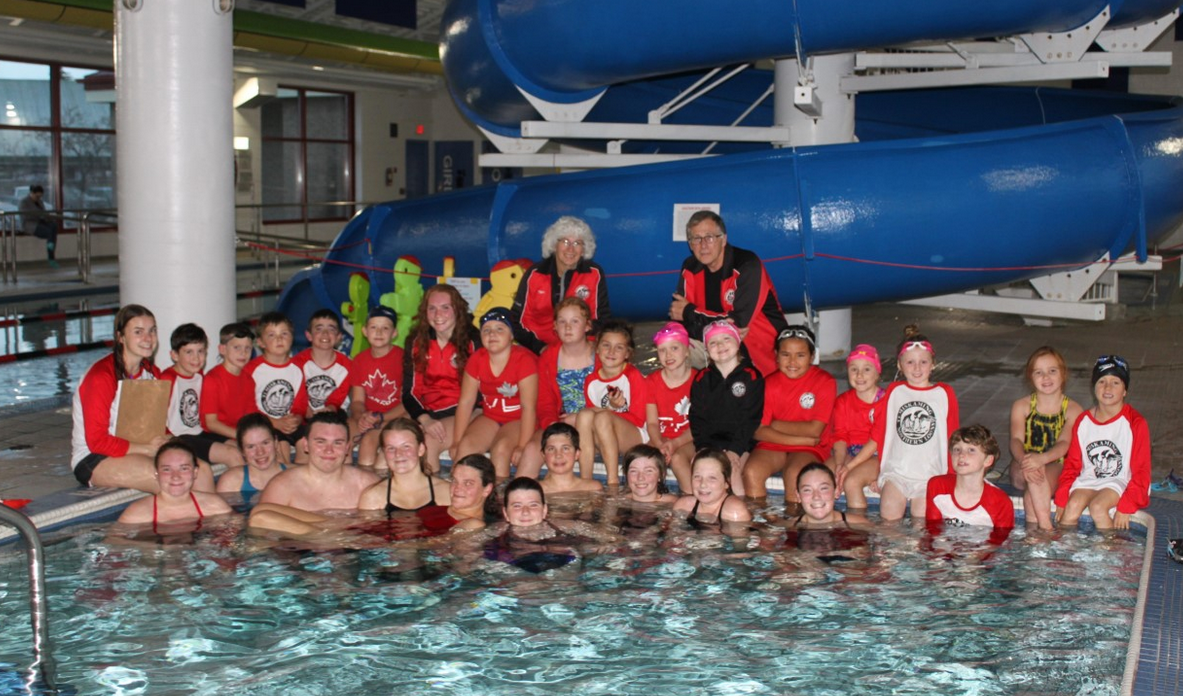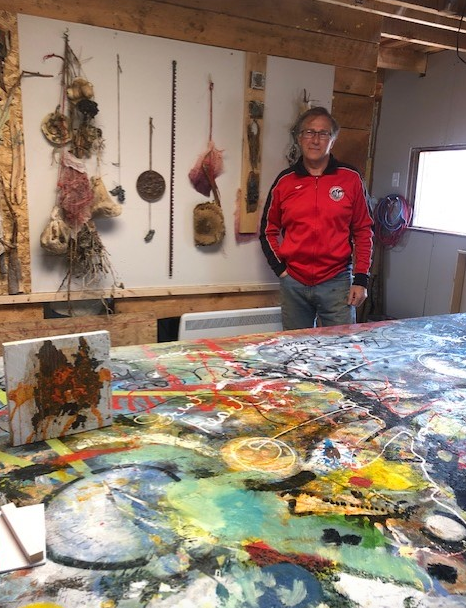Features
September 10, 2020
Love of Art and Swimming

Bruce Cull
“At one time, I built this team and told them, I was committed to helping them.” - Bruce Cull
By David Grossman
Bruce Cull may not be a swimmer, but he’s immersed in the sport in a big way.
As a founding coach of what is now known as the Temiskaming Northern Loons swim club, there was a time when Cull was consumed in running the small recreational group in the northeastern part of the province and close to the Ontario-Quebec border.
That was back in the club formation year of 1990, when his swimmers would train with the Kirkland Lake Aquatic Club. The following year, it had a new name – the Tri-Towns Swim Club, known for the communities of Haileybury, Cobalt and New Liskeard.
When amalgamation occurred, and Temiskaming Shores was created, the club benefited from the municipally-run indoor pool – and it had its own logo, something Cull had a creative hand in.

The pool wasn’t big back then, but it remains the same size - a 25-metre pool with only two lanes. It’s better than nothing or, as Cull puts it, better than getting into vehicles and having to commute to other jurisdictions. Not an easy thing, especially in the winter months.
“When we started, we had a pool, and a variety of young people had a place to swim – either for fun, physical activity or to take it to the competitive level,” said Cull. “That’s the way it is today. Although challenging at times, with 23 enthusiastic swimmers and limited space, we make it work for everyone.”
Raised in Sturgeon Falls, located about one hour south-east of Temiskaming Shores, Cull was a multi-sport athlete in his high school years. He recalls being chosen Athlete of the Year, primarily singling out his performances in football and wrestling.
A change of residence occurred and the closest Cull got to swimming came years later was when he would drive one of his sons to swim competitions in Kirkland Lake and Sudbury. Not what you would call close proximities from home.
It wasn’t long before Cull and the introduction to coaching came about.
“We needed a coach, so I had to learn to be one,” he said. “I worked hard to get my certification and am still learning. Something had to be done to give these kids an opportunity to learn and enjoy what others often take for granted.”
To Cull, life would give him an experience in a different kind of marriage - art and swimming.
As a 16-year old, Cull said he had “a terrific art teacher” and he went on to cherish the essence of painting. Cull had found a niche, and would go on to study and earn his degree at the Ontario College of Art and Design. Later, he would earn a Bachelor of Fine Arts from the University of Calgary.
Engrossed in painting, and an award winner, his works are reflections of the environment around his community. With the charm and elegance of north-eastern Ontario, a paradise for nature lovers, it didn’t take Cull long to design the logo of the swim club.
“This is a beautiful part of the country and my work is primarily nature-based paintings,” said Cull, who has his own studio and lives on an old farm property about a 30-minute drive to downtown Temiskaming Shores. “I love what I do, but I adore working with kids who are dedicated and committed to the sport of swimming.”
For him, the coaching experience of working with those between the ages of seven and 18, lasted 15 years. Caring for four children and building an art career, was quite the package. In 2005, Cull needed a change and resigned.
However, he would return to the pool deck again in 2016. The situation was not good following the tragic death of swim club coach Leonard Lear. Returning from a competition in the Greater Toronto Area, reports said that the vehicle Lear was driving was involved in an accident colliding with a moose.
“I remember getting the news and a text from my son, now a teacher, asking me if I could find time to return to coach,” said Cull. “I knew the club would fold. There was no one else to turn to and getting qualified coaches to this part of Ontario was next to impossible.”
Cull didn’t hesitate, even though the responsibilities had mushroomed to coaching six days a week – and 10 months of the year.
While Cull thrives on watching swimmers have fun, he brings to mind several swimmers who raise attention to the competitive side of the Temiskaming Northern Loons.
In 2003, Sarah Lickley placed fourth in the breaststroke competition at the Canadian Junior Nationals in Calgary. Kayla Marwick, a para athlete, won a bronze medal in the 200-metre butterfly at the 2018/19 Eastern Nationals in Quebec City.
In the summer of 2019, Danika Bigras won silver and bronze medals at at meet in Brantford. And one of the Cull’s sons, Theo, was captain of the University of Toronto swim team and came within fractions of a second of reaching the Senior National qualifying time in the breaststroke.
“Swimming matters a lot to these kids, they never complain, always stay focussed on what has to be done and work hard,” said Cull. “At one time, I built this team and told them, I was committed to helping them.”
David Grossman is a veteran award-winning Journalist, Broadcaster with some of Canada’s major media, including the Toronto Star and SPORTSNET 590 THE FAN, and a Public Relations professional for 45+ years in Canadian sports and Government relations.
